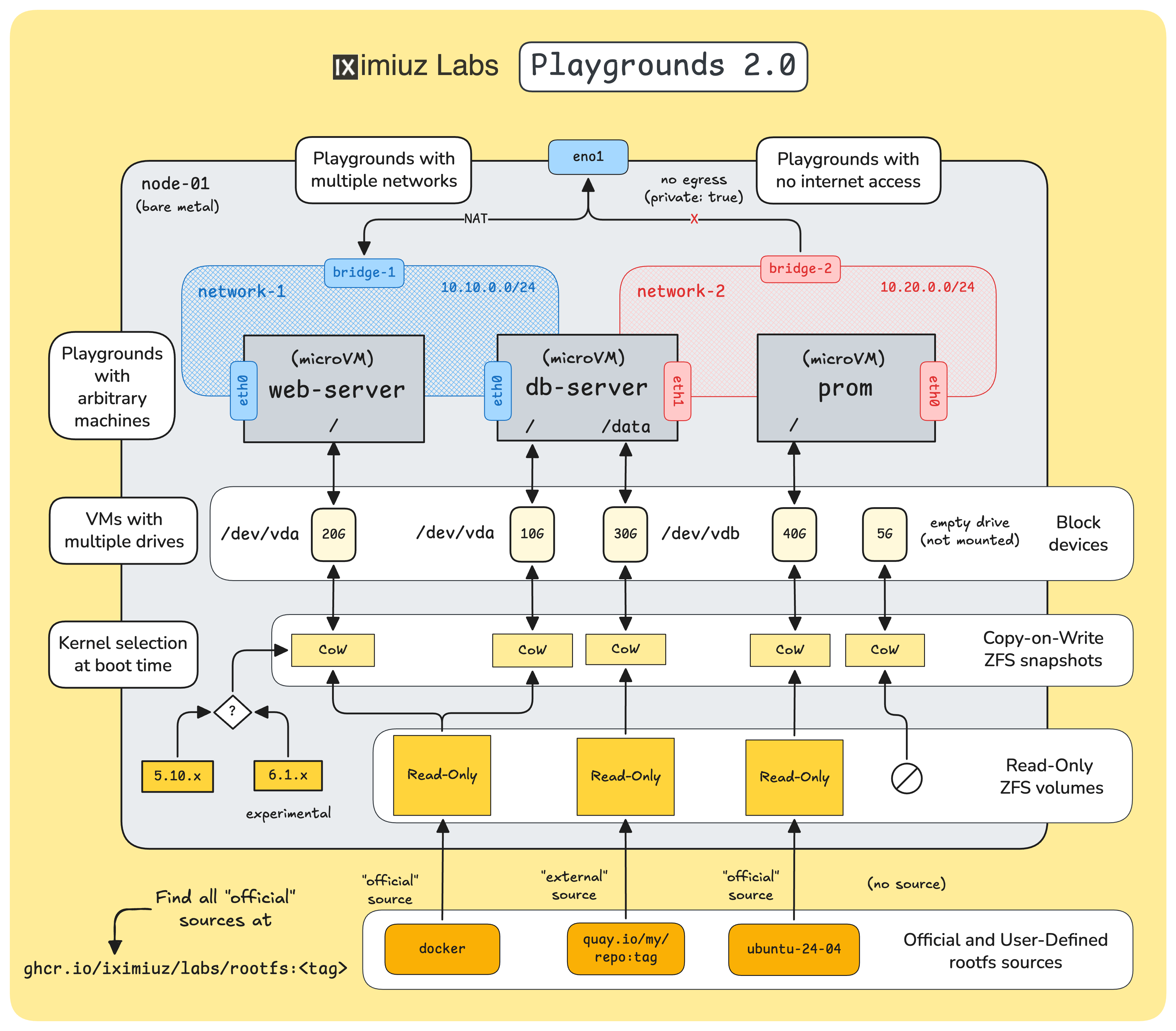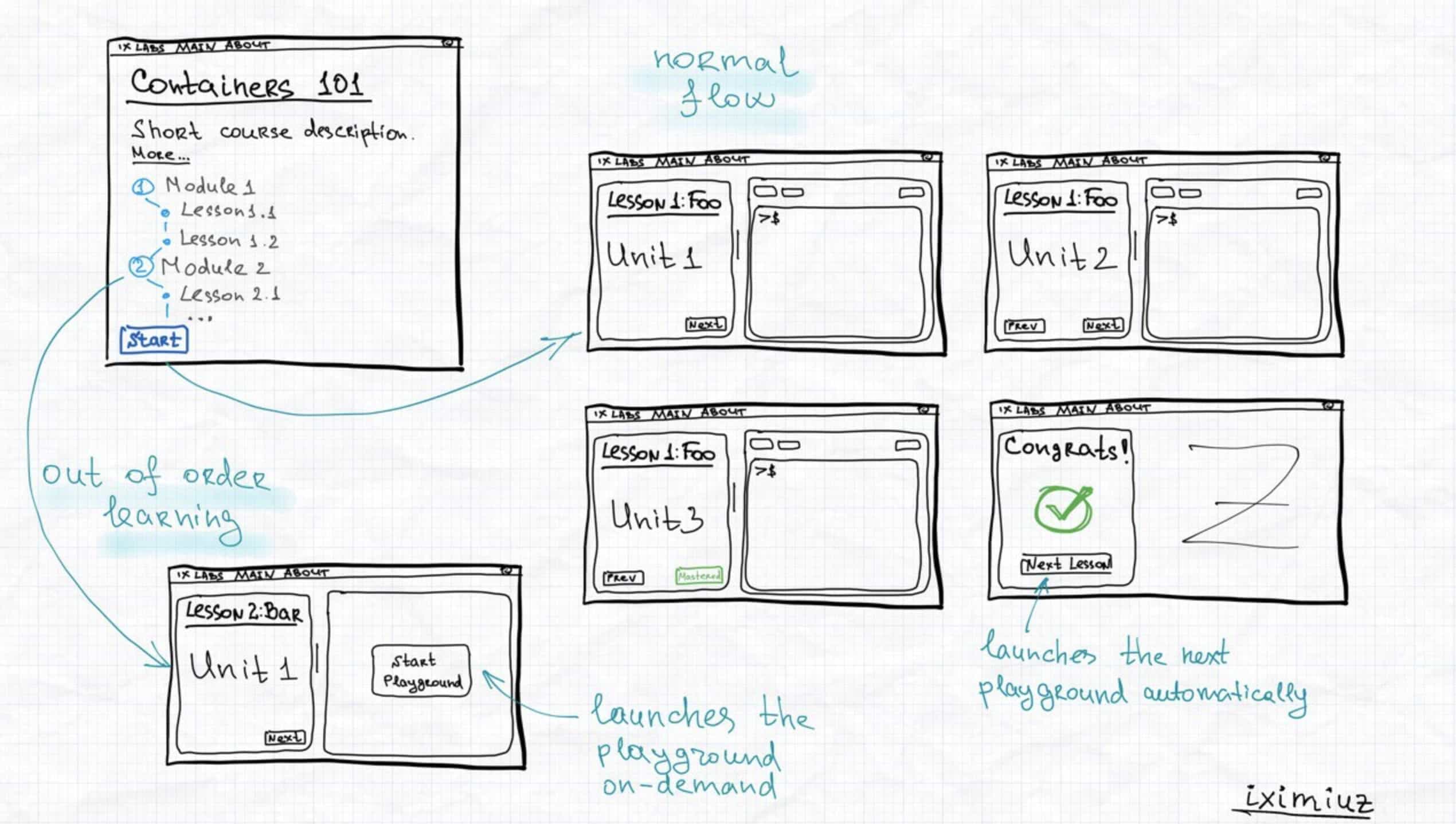There are many resources for people who want to learn Linux, Containers, or Kubernetes. However, most of these resources don't come with an interactive, hands-on learning experience. You can read tens of fine blog articles and watch hundreds of engaging YouTube videos, maybe even take some courses with theoretical quizzes at the end, but it's doubtful you'll master any of the above technologies without actively practicing them.
Theoretical-only knowledge of, say, Kubernetes doesn't really count. Hands-on exercises should be a must-have learning element. Some resources, including this blog, strive to provide reproducible instructions so that students can try out the new skills. However, for that, a running system is needed. Setting up such a system can make the learning curve substantially steeper or even make the task fully unbearable for inexperienced students.
So, where can a student practice the new skills?
One option is to experiment on a real staging (or production 🙈) environment. But it can be quite harmful. Luckily, there is an alternative. Some learning platforms offer interactive playgrounds mimicking real-world setups. On these platforms, students can SSH into disposable Linux servers, or even access multi-server stages right from their browsers!
Experimenting with the new skills in such sandboxes makes the learning hands-on. At the same time, these platforms free students from the need for provisioning playgrounds. It brings students closer to real-world environments while keeping the learning process safe - playgrounds can always be destroyed and recreated without damaging any real production systems.
I got so fascinated by the idea of interactive playgrounds recently that I spent a week researching platforms that provide in-browser learn-by-doing experience. Below are my findings, alphabetically ordered:
Read more

